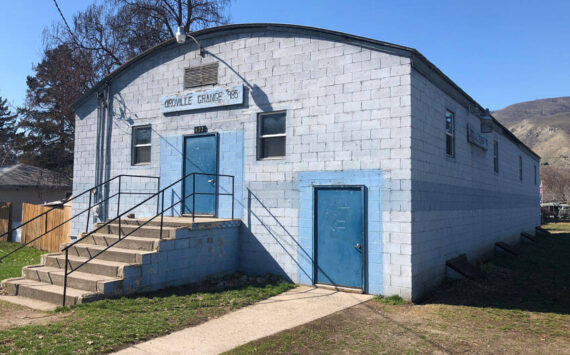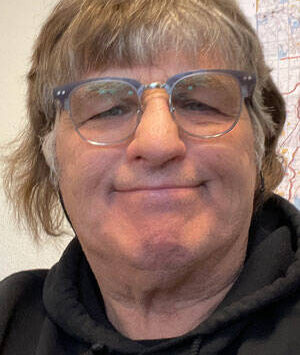OROVILLE – The Oroville EMS Association approached the city with a proposal they believe will address the issues with the ambulance service – namely a shortage of staff and the lack of a director.
The OEMSA addressed the city council at their Tuesday, March 3 meeting. Michael Greene, the coordinator of the Tonasket EMS showed a PowerPoint presentation to try and help explain what the Oroville Association had in mind – something akin to what takes place in Tonasket.
“We propose a contract between the City and OEMSA where we take responsibility for the recruitment, training, staffing, supplying and operational leadership of the ambulance service. The City would continue to collect taxes and transport fees and maintain ownership of the ambulance facilities and equipment. The $160,000 cost of this contract would be paid with existing revenues. This method works successfully around the country,” writes the OEMSA in their proposal.
The issue of staffing came to a head when the city began considering the possibility of contract with a private ambulance service, Lifeline, to provide services in town.


“I can’t overstate that you are overworking your people and overtaxing the system,” said Greene. “With this written proposal we are asking your help and support in order to solve the issues before it unravels”
Greene said Oroville was not alone and that other communities were looking at similar solutions, including Grand Coulee. Currently Tonasket, Oroville, Republic and Coulee Dam run their own ambulance districts.
“Ambulance districts are so unique to Washington State,” he said.
Janet Allen, a volunteer on the Oroville EMS said she really appreciated Greene putting together and presenting the proposal.
“I know I am on board with it and that’s what I hear from the rest of the crew,” she said.
Hearing talk that the city may contract with Lifeline, the council chambers were filled to capacity with local EMTs and their supporters, as well as EMTs from Tonasket. There were several questions about how come there seems to be a constant shortage of volunteers.
Most of the answers talked about the time it takes away from family and work to serve on the ambulance crew – both in training and on call. Crew members also discussed the cost of becoming certified.
“It’s not a fast process and it’s not a cheap process…. I guess you’re looking at about $1000 per person,” said Allen.
“It’s not just the classes, it’s all the time in between… this can be a thankless job,” said Councilman Tony Koepke, who serves on the city’s Ambulance Committee.
There was a lot of talk about how to solve the shortage of trained crew members and how to defray costs. There was also gratitude shown to the city for helping with costs in the past.
“I think if we have a dynamic approach with the people you have, we should be able to attract people,” said Greene. “As your neighbors there are some things we can do to help.”
He addressed the “thankless job” comment by saying that volunteer ambulance services lose about one-third of their people in class and lose half of those that finish their class after two years of service.
“It’s great to hear an offer of help from our neighboring district,” said Oroville Mayor Chuck Spieth.
Dale Gavin, president of the OEMSA said the association had a lot of work to do before they could take over the ambulance service entirely.
“We don’t have our 501C3 and we need to update our SOPs (Standard Operating Procedures) and our bylaws are in limbo. We have to get that done before we could write up a contract,” said Gavin.
Greene said he’d be glad to donate his time to bring the Oroville association up to speed.
“It should take weeks, not months. I will give my time to see that happen,” Greene said.
Mayor Spieth said the city will definitely take it into consideration.
“No one ever said we don’t want to have an ambulance service,” said the mayor.
Lisa Bordwell, also with the OEMSA, asked what kind of time frame they were looking at before the city made it’s decision on what way to go.
“We are kind of in limbo until we know what some of our options are… are you looking at making a decision next month or in two months?” asked Bordwell, adding, “You are not going to be happy if you go the other way.”
The mayor explained that the city would have to meet with the rural part of the district.
“They are a big part of this decision,” he said.
Councilman Ed Naillon added, “Sounds like no matter which way we go we need to get people into service… the only place we have our problem is staff.”
Naillon said he wanted to thank the ambulance crew for all they do and that he was excited to see their proposal on the table.
“What’s unique about volunteers is there is an intermittent need and you need to have them available,” said Naillon.
“We put our lives on hold because we are so dedicated to our community,” said Wendy Burks, a volunteer for the Tonasket ambulance crew.
“We are very lucky for what we have in the way of health services here,” said Joan Morrison.
A tearful Penny Rader added, “I was never so glad to see these people pick my mom off the sidewalk after she fell. I just want to say it’s not a thankless job.”






